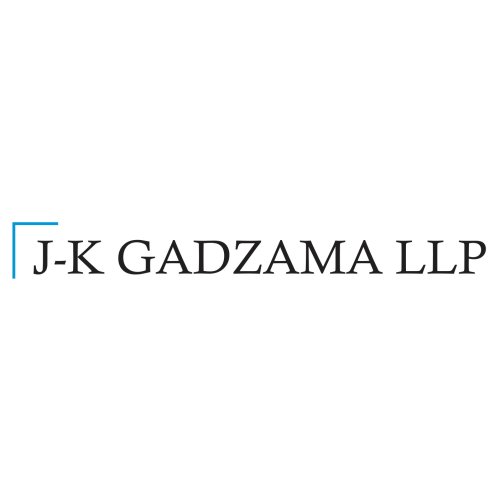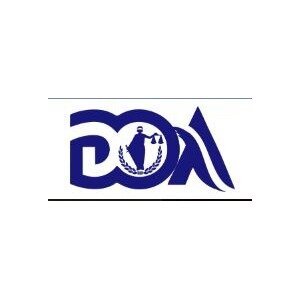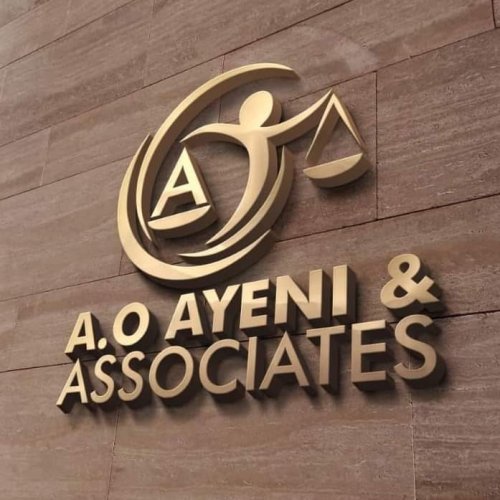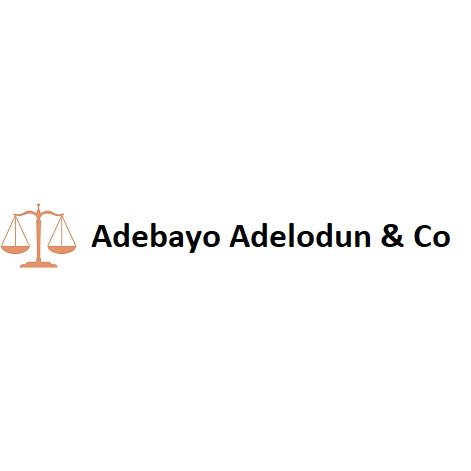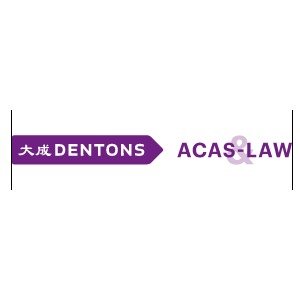Best Employment Rights Lawyers in Abuja
Share your needs with us, get contacted by law firms.
Free. Takes 2 min.
List of the best lawyers in Abuja, Nigeria
Nigeria Employment Rights Legal Questions answered by Lawyers
Browse our 2 legal questions about Employment Rights in Nigeria and read the lawyer answers, or ask your own questions for free.
- Employee Benefits not given 3 months after resignation
- The employee resigned and benefits had not been paid by the company after three months.
-
Lawyer answer by A.O AYENI & ASSOCIATES
This is actionable and can be enforced in court if the company refuses to pay even after writing a letter to them.
Read full answer - Next steps after suspension
- What can I do if my employer refused to call me back after serving suspension
-
Lawyer answer by Cabinet de Consultance et d'expertise juridique
Vous pouvez saisir l'organe en charge des litiges entre employeurs et employés.
Read full answer
Nigeria Employment Rights Legal Articles
Browse our 1 legal article about Employment Rights in Nigeria written by expert lawyers.
- Are Unwritten Employment Contracts Legally Valid and Enforceable in Nigeria?
- A contract of employment can exist whether orally or in writing. It can arise out of any discussion, obligation or instruction to do an act as far as the elements of a contract are present. Agreements are made to be honoured. An unwritten contract is enforceable provided it complies with... Read more →
About Employment Rights Law in Abuja, Nigeria
Employment Rights Law in Abuja, Nigeria is a body of legal regulations that governs the rights and obligations of both employers and employees in the workplace. These laws ensure fair treatment, protection, and the promotion of a healthy working environment for all individuals employed within Abuja, Nigeria.
Why You May Need a Lawyer
There are several common situations where seeking legal assistance for Employment Rights in Abuja, Nigeria may be necessary:
- If you believe you have been wrongfully terminated from your job
- If you have experienced workplace discrimination or harassment
- If your employer has failed to pay your wages or provide benefits as promised
- If you need help negotiating or reviewing an employment contract
- If you require guidance on workplace health and safety regulations
Local Laws Overview
Employment Rights in Abuja, Nigeria are primarily governed by the following laws:
- The Nigerian Labour Act, which sets out the general rights, duties, and obligations of employers and employees
- The Labour Act Amendment of 2021, which introduced additional protections for workers and addressed emerging labor issues
- The Employee Compensation Act, which establishes a framework for compensating employees for work-related injuries or death
- The Discrimination Against Persons with Disabilities (Prohibition) Act, which protects individuals with disabilities from discrimination in the workplace
Frequently Asked Questions
1. Can my employer terminate my employment without any valid reason?
Under Nigerian labor laws, an employer can terminate an employee's contract, but they must have a valid reason for doing so. If you believe you have been wrongfully terminated, it is essential to consult with a lawyer to understand your rights and explore potential legal remedies.
2. What should I do if I am a victim of workplace harassment or discrimination?
If you experience workplace harassment or discrimination, it is crucial to document the incidents and gather any evidence available. You should report the situation to your employer or the appropriate internal channel. If the issue remains unresolved, seeking legal advice from an employment rights lawyer can help protect your rights and pursue appropriate actions.
3. What are my rights regarding fair wages and benefits?
Employees in Abuja, Nigeria are entitled to fair wages and benefits as agreed upon in their employment contract. If your employer fails to pay your wages or provide the benefits stipulated in your contract, you may have legal recourse. Consulting with an employment rights lawyer can help you understand your rights and explore legal options for obtaining what you are owed.
4. How can I ensure a safe and healthy working environment?
Your employer has a legal obligation to provide a safe and healthy working environment. If you have concerns about workplace safety or health hazards, you should report them to your employer or the appropriate authority. If your employer fails to address these concerns, seeking legal advice can help you understand your rights and pursue appropriate action.
5. Can my employer change the terms of my employment contract without my consent?
An employer cannot unilaterally change the terms of your employment contract without your consent. Any proposed changes should be communicated and agreed upon by both parties. If your employer attempts to change the terms of your contract without proper consultation or consent, a lawyer specializing in employment rights can provide guidance on your legal options.
Additional Resources
For individuals seeking legal advice or further information about Employment Rights in Abuja, Nigeria, the following resources may be helpful:
- Abuja Employment Rights Advocacy Group - An organization that provides legal assistance and promotes awareness of employment rights issues in Abuja
- Federal Ministry of Labour and Employment - The governmental body responsible for overseeing labor relations and ensuring compliance with employment laws
- Nigerialabourlaws.com - An online resource that provides access to relevant labor laws and regulations in Nigeria
Next Steps
If you require legal assistance in Employment Rights in Abuja, Nigeria, here are the recommended steps to take:
- Gather all relevant documents and evidence related to your employment issue.
- Research and identify reputable employment rights lawyers in Abuja, Nigeria.
- Contact the selected lawyers to schedule consultations and discuss your case.
- During the consultation, provide the lawyer with all pertinent information and ask any questions you may have.
- Based on the lawyer's advice and expertise, determine the best course of action to protect your rights and achieve a favorable outcome.
- If necessary, engage the lawyer's services to represent you and advocate for your rights throughout the legal process.
Lawzana helps you find the best lawyers and law firms in Abuja through a curated and pre-screened list of qualified legal professionals. Our platform offers rankings and detailed profiles of attorneys and law firms, allowing you to compare based on practice areas, including Employment Rights, experience, and client feedback.
Each profile includes a description of the firm's areas of practice, client reviews, team members and partners, year of establishment, spoken languages, office locations, contact information, social media presence, and any published articles or resources. Most firms on our platform speak English and are experienced in both local and international legal matters.
Get a quote from top-rated law firms in Abuja, Nigeria — quickly, securely, and without unnecessary hassle.
Disclaimer:
The information provided on this page is for general informational purposes only and does not constitute legal advice. While we strive to ensure the accuracy and relevance of the content, legal information may change over time, and interpretations of the law can vary. You should always consult with a qualified legal professional for advice specific to your situation.
We disclaim all liability for actions taken or not taken based on the content of this page. If you believe any information is incorrect or outdated, please contact us, and we will review and update it where appropriate.




